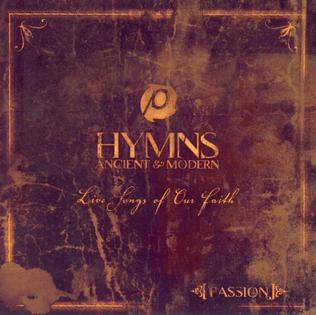
Ancient Anglican
A Modern Perspective on Early Christian Thought.
New on the Blog
Hymns – Advent and Christmas, pt.2
Traditionally, the church has emphasized Christmas, not so much as a baby in a manager, but as the celebration of God come-to-earth. Therefore, in Advent, our hymns emphasize both the Incarnation and the Parousia (Second-Coming).
Hymns – Advent and Christmas, pt.1
Tonight we are singing “Come, thou Redeemer of the Earth” by Ambrose of Milan which is the first Christmas hymn written in the Western Church and maybe in all of Christendom.
Hymns – The Gospel in Hymns, pt.2
In “All Creatures of Our God and King,” St. Francis of Assisi tells us that we fully come to know God only when we join our voices with all of creation – the sun, the moon, the wind, water, fire, and earth.
Hymns – The Gospel In Hymns, pt.1
For each hymn I have linked to the Hymnary.org discussion of the hymn which gives a brief overview of the author, notes of scriptural references, bulletin notes, and different tunes to which the hymn may be sung.
Hymns – Handout on a History of Hymns in the Church
“When someone reads the words of a psalm as an act of worship, he or she takes over, in a sense, the psalm’s authorship. It may have been written by an ancient Levite, but at the moment of its recitation, its words become the worshiper’s own.”
James Kugel, “How to Read the Bible”
Hymns – A History of Hymns in the Church, pt.2
Therefore if you enjoy singing hymns in church, it all goes back to a 15th-century Czech reformer whose descendants’ hymns caused the conversion of two Anglican priests. Tonight, we will look at Hus and Wesley and other people who influenced the development of our hymnody.
Hymns – A History of Hymns in the Church, pt.1
John Wesley instructs us that all hymn singing must be done spiritually with an eye towards singing the words written and not being carried away by the tune. And so, as we go through the hymns over the next several weeks, make sure that all of our singing is done to the glory of God and the edification of our hearts.
Romans 15-16, pt.2
In commenting on Romans 16:6, Chrysostom says “How is this? A woman again is honored and proclaimed victorious. Again, we men are put to shame. . . . For an honor, we men have in that there are such women amongst us.”
Romans 15-16, pt.1
This week, we are going to study everyone in Paul’s farewell.
Romans 14-15:13, pt.2
Paul’s command to us is not to surround ourselves with like-minded individuals, but it is to live in love and peace and harmony with those with whom we may strongly disagree. For if you only love those who love you, what good is that?
Romans 14-15:13, pt.1
The question, therefore, is how can a congregation be reconciled when one faction is denying God’s grace and the other is denying the clear rules of Scripture written in stone? How can the congregation live in peace and togetherness is the question addressed.
Romans 13, pt.2
What does it look like to have love govern all things. If love is the lens through which to interpret Scripture, how do our Bibles readings change? If love governs our actions, how does our behaviour change? If love dictates our thoughts, how does we change?


